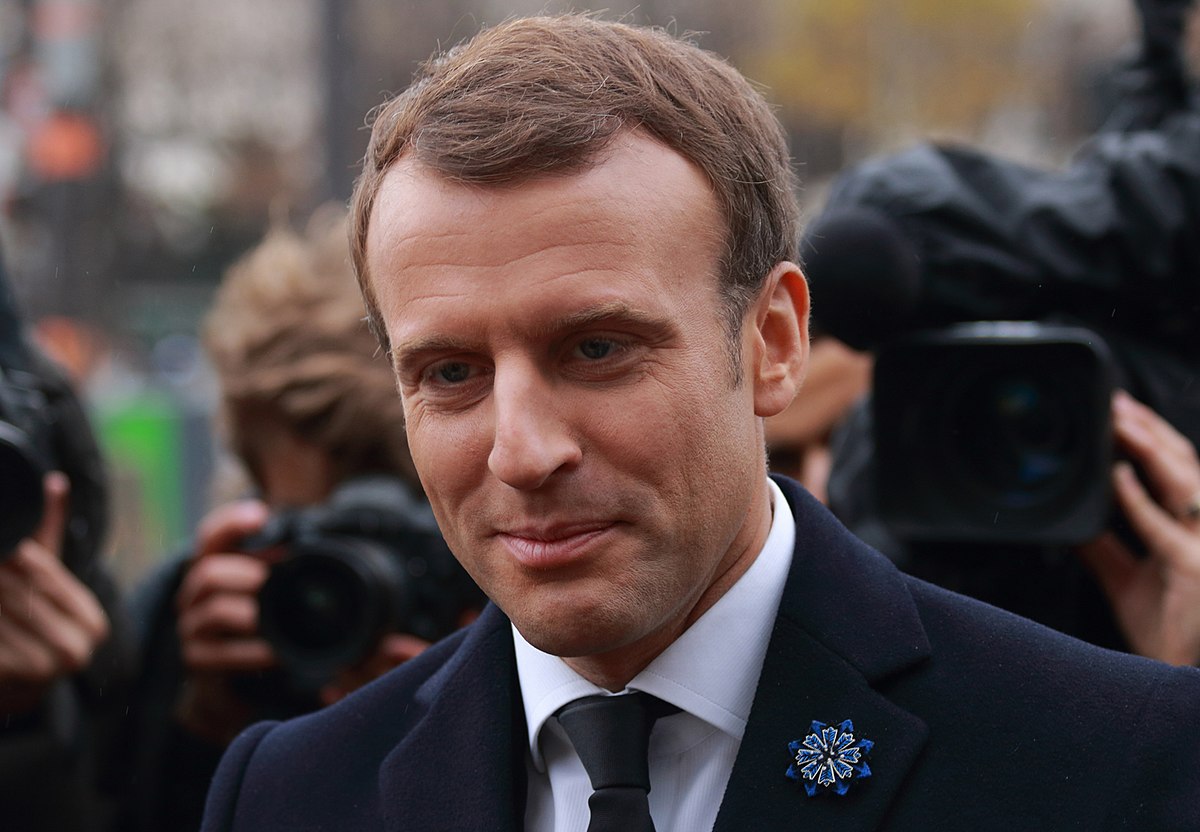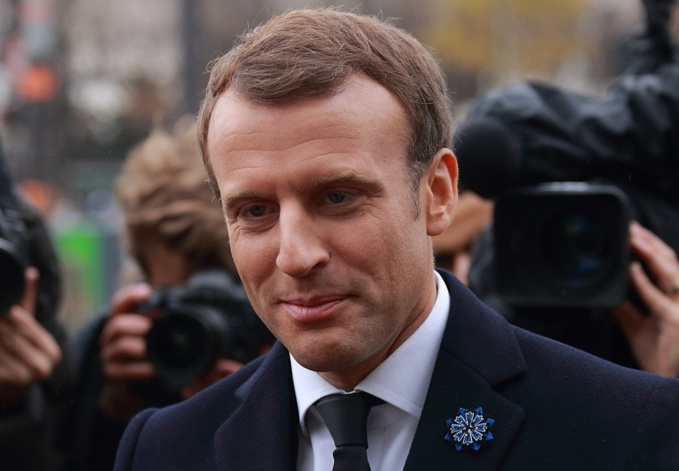Paris intends to strengthen the role of the euro in international payments and to counteract American sanctions against Iran. In an interview with the Financial Times, Minister of Economy and Finance of France Bruno Le Maire spoke about plans to create a financial channel that will allow Europe to maintain trade relations with Iran and will strengthen the "economic sovereignty" of the continent.
"Europe will not allow the United States to become a merchant policeman on the planet," warned Bruno Le Maire and added that anti-Iran sanctions once again showed the need for the EU to "reaffirm its independence."
Recall that Europe, along with Russia and China, are in favor of preserving the Iranian nuclear program deal, from which the United States withdrew unilaterally in May this year. The vast majority of European countries have not received temporary relief from Washington.
French business is not as resolute and belligerent as the French government. The leading companies of the Fifth Republic, including Peugeot and Total, have already curtailed their activities in Iran. They decided that ties with Iran are not worthy of ties with America. The attitude of European business towards the fight of Brussels against anti-Iranian sanctions is eloquently illustrated by the example of the Swift payment system, which announced on Monday that it stops servicing Iranian banks.
Bruno Le Maire did not disclose details about the financial channel, which will allow keeping trade with Tehran. The EU has already tried to create a separate trade channel with Iran, but the implementation of the idea had to be postponed because of disagreements over the most important details. Despite the ominous warning of the French minister, most European countries are very cautious about this initiative, because they are afraid of Washington’s response. Of course, the main threat from the US is the dollar and expulsion of the recalcitrant from the American financial system, which is fraught with multi-million or even billions in losses.
Nevertheless, the organization of an autonomous trade channel between Europe and Iran, whose main supporters are three signatories of the nuclear deal: France, Germany and the United Kingdom, the so-called Special Purpose Vehicle (SPV), remains in the plans of Brussels. Its essence is creation of a legal entity that will make payments to facilitate legitimate financial transactions with Iran.
According to Bruno Le Maire, work on the creation of an SPV is in full swing despite the difficulties. Most likely, it will be registered as a limited liability company, which at the second stage will receive a banking license to conduct financial transactions and affairs. Despite the fact that the French minister did not name the countries where it will be located, he hinted that the idea still aroused interest in Europe. The main thing now is to find a suitable city.
However, as noted above, private business does not want to risk and anger Washington for the sake of preserving business relations with Iran. This is probably why the US ambassador to the EU, Gordon Sondland, called the SPV a “paper tiger”, unambiguously hinting at its uselessness.
Paris, however, considers the SPV one of the steps of a full-scale campaign aimed at strengthening the role of the euro in the international arena. The European Commission promises to submit a plan to strengthen the role and authority of the common European currency by the end of the year. From the hints of European officials it follows that it will provide, for example, calculations for the supply of energy in Euro. Le Maire considers equally important steps in this direction to strengthen the crisis sustainability of the euro zone by deepening capital markets and creating a unified budget for all euro zone members.
source: ft.com
"Europe will not allow the United States to become a merchant policeman on the planet," warned Bruno Le Maire and added that anti-Iran sanctions once again showed the need for the EU to "reaffirm its independence."
Recall that Europe, along with Russia and China, are in favor of preserving the Iranian nuclear program deal, from which the United States withdrew unilaterally in May this year. The vast majority of European countries have not received temporary relief from Washington.
French business is not as resolute and belligerent as the French government. The leading companies of the Fifth Republic, including Peugeot and Total, have already curtailed their activities in Iran. They decided that ties with Iran are not worthy of ties with America. The attitude of European business towards the fight of Brussels against anti-Iranian sanctions is eloquently illustrated by the example of the Swift payment system, which announced on Monday that it stops servicing Iranian banks.
Bruno Le Maire did not disclose details about the financial channel, which will allow keeping trade with Tehran. The EU has already tried to create a separate trade channel with Iran, but the implementation of the idea had to be postponed because of disagreements over the most important details. Despite the ominous warning of the French minister, most European countries are very cautious about this initiative, because they are afraid of Washington’s response. Of course, the main threat from the US is the dollar and expulsion of the recalcitrant from the American financial system, which is fraught with multi-million or even billions in losses.
Nevertheless, the organization of an autonomous trade channel between Europe and Iran, whose main supporters are three signatories of the nuclear deal: France, Germany and the United Kingdom, the so-called Special Purpose Vehicle (SPV), remains in the plans of Brussels. Its essence is creation of a legal entity that will make payments to facilitate legitimate financial transactions with Iran.
According to Bruno Le Maire, work on the creation of an SPV is in full swing despite the difficulties. Most likely, it will be registered as a limited liability company, which at the second stage will receive a banking license to conduct financial transactions and affairs. Despite the fact that the French minister did not name the countries where it will be located, he hinted that the idea still aroused interest in Europe. The main thing now is to find a suitable city.
However, as noted above, private business does not want to risk and anger Washington for the sake of preserving business relations with Iran. This is probably why the US ambassador to the EU, Gordon Sondland, called the SPV a “paper tiger”, unambiguously hinting at its uselessness.
Paris, however, considers the SPV one of the steps of a full-scale campaign aimed at strengthening the role of the euro in the international arena. The European Commission promises to submit a plan to strengthen the role and authority of the common European currency by the end of the year. From the hints of European officials it follows that it will provide, for example, calculations for the supply of energy in Euro. Le Maire considers equally important steps in this direction to strengthen the crisis sustainability of the euro zone by deepening capital markets and creating a unified budget for all euro zone members.
source: ft.com



















